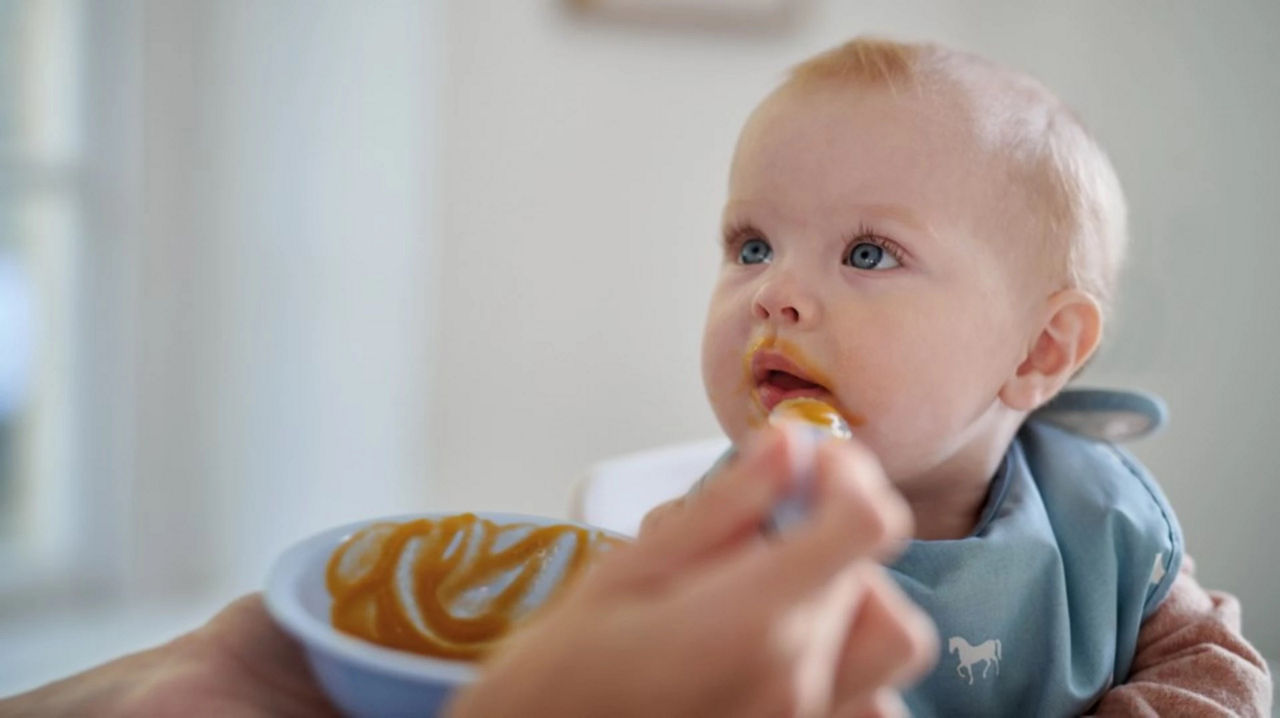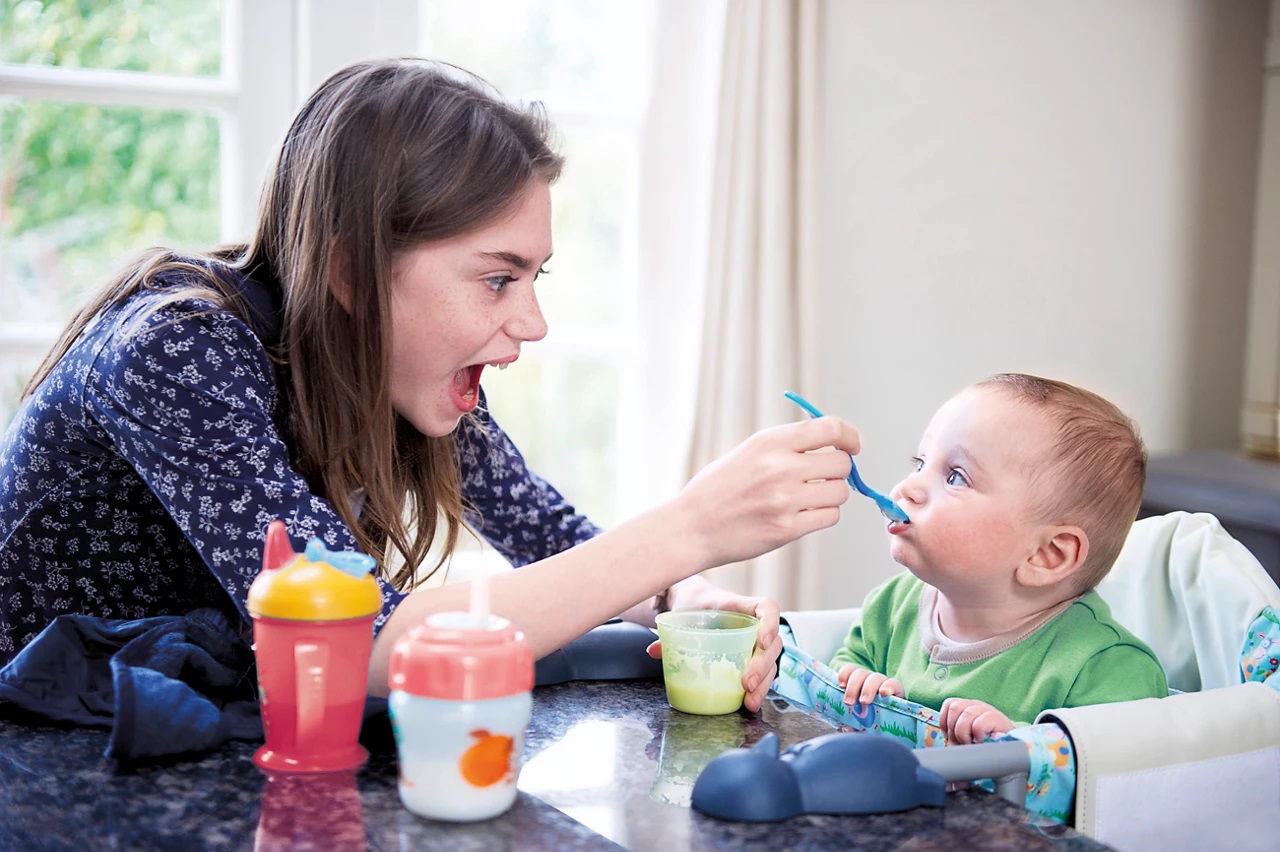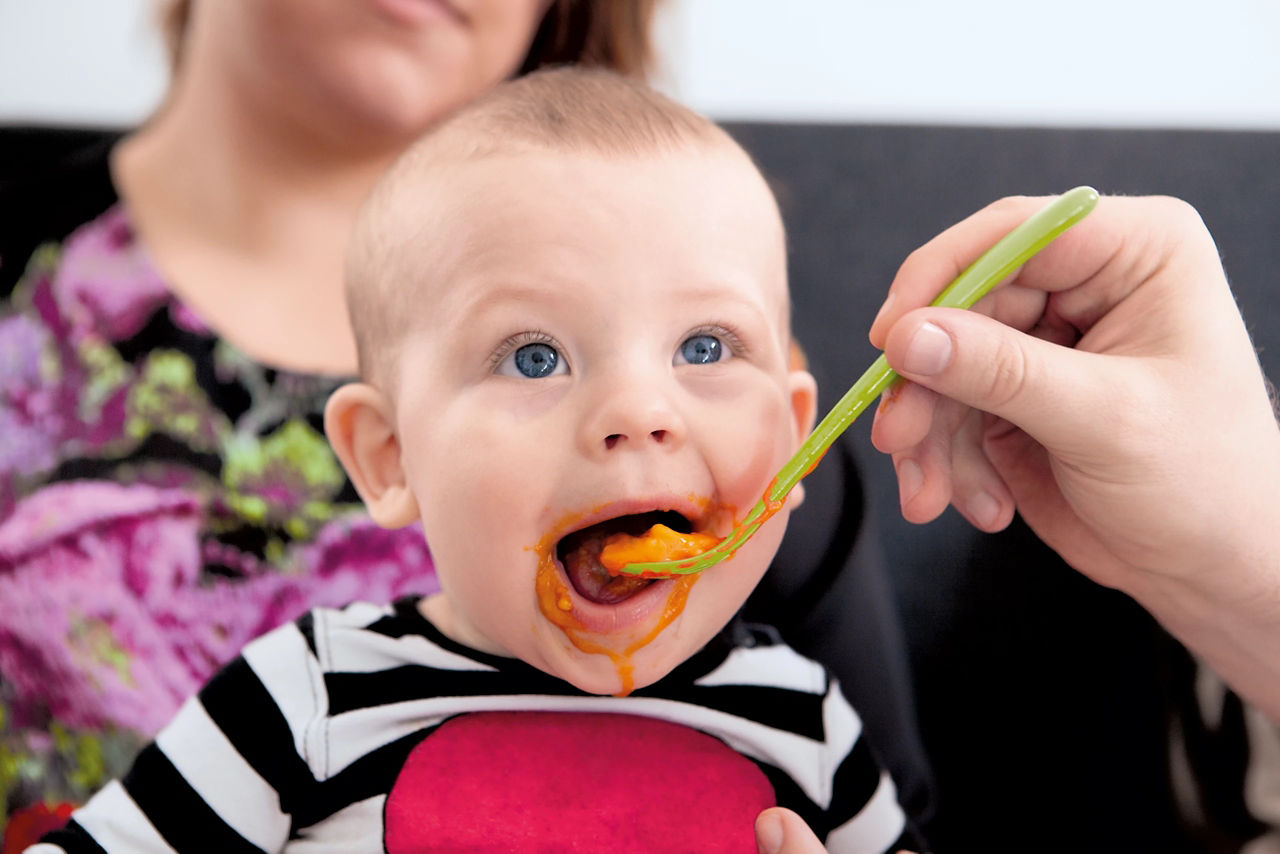Free weaning plan - Register here
Your child is on an incredible journey, constantly learning new skills and transforming before your eyes. Whilst every parent wants their little one to eat well, sleep and fill their nappy regularly, babies and toddlers can be sensitive little things, and sometimes they can have problems with feeding and digestion.
Here are 5 things you can do to help your little one develop a healthy and happy tummy.
1. The benefits of probiotics and prebiotics for babies

Although they are invisible, the tiny microscopic bacteria in your baby’s tummy are essential to their health and wellbeing, and an imbalance of healthy bacteria can cause digestive discomfort for your little one. Childhood is an important time to help promote the growth of beneficial gut bacteria. It’s important to have a varied diet including probiotics and prebiotics. The easiest way to think about probiotics is that they are the friendly bacteria found in the gut and prebiotics act as food for the friendly bacteria to thrive. The population of all the bacteria living in the gut is known as the “microbiome”. Encouraging some interaction with nature is also important to diversify your little one’s microbiome, which in turn supports their immune system.
Breastmilk is the best source of nutrition for infants. The prebiotics and probiotics that are naturally found in breast milk can have a positive effect on your baby’s tummy by encouraging the growth of good bacteria and reducing the growth of potentially harmful bacteria.
However, if you cannot, or choose not to breast feed, consult your healthcare professional for advice whether a milk with added prebiotics is suitable for your baby.
2. Encouraging your baby to eat a healthy diet

The food your little one eats has a big impact on their gut health, so it’s good to make sure every mouthful is packed full of the right nutrients. In addition to their usual milk and from around 6 months*, a healthy diet should become more varied with increasing amounts of fruits, vegetables, whole grains, some lean meats and fish (or alternative protein source), whilst the amount of sugary and processed foods should be limited. It’s perfectly normal for your little one to need a little encouragement to try new foods. If they see you and the rest of the family enjoying these foods, they will be more likely to try them.
Once you start introducing solid foods to your baby’s diet, it’s good to know that probiotics can be found in natural yoghurts and fermented vegetables. Prebiotics are found in garlic, onions, leeks, asparagus, and some enriched formula milks. If you have any concerns or doubts about your baby’s weaning, please contact a healthcare professional.
*The Department of Health recommend weaning at around 6 months.
3. Feeding your baby little yet often

Did you know that your baby’s tummy is around 10 times smaller than yours? So, by feeding them smaller portions more regularly, you’ll help keep their energy up during the day and ensure your little one never gets too full or bloated.
Reflux is when a baby brings up milk or is sick shortly after feeding. Reflux is really common in babies and something that they often grow out of. You may worry that your little one isn’t getting enough nutrients, but as long as they’re growing well and filling their nappies there shouldn’t be a problem. Reach out to your healthcare professional if you have any concerns or need additional support.
4. Keeping your baby hydrated

The prebiotics in breastmilk will ensure that your little one’s poo will remain soft. However, when they become a bit older, constipation can become a common problem. Hard poo that looks like small pebbles, smelly wind, or excessive straining are all signs to look out for. Making sure your little one is well hydrated will help prevent constipation. Healthy babies under 6 months old do not need extra liquids (such as water or juice) because they should receive adequate hydration and nutrients from breastmilk or formula-milk. For children older than 6 months, offer water in a cup throughout the day. Juice is not recommended for children under 1 year.
If you have concern over your babies poo or your baby is showing signs of distress please contact a healthcare professional for advice.
5. Baby exercises
 Do not leave your little one unattended when eating and drinking
Do not leave your little one unattended when eating and drinking
We all know how much better we feel after exercise and it’s no different for your little ones! Massaging your baby’s tummy, or gently moving their legs in a cycling motion can help encourage bowel movements in babies, and for toddlers some general exercise may help to get things going. Why not enjoy some dancing, stretching or yoga together? If possible, taking a walk outside whilst remaining responsibly distanced and avoiding large crowds is a great way to encourage your little one to enjoy exercise.
Related articles
Baby topics
Any more questions?
Our specialist baby advisors and experienced mums are here to talk and ready to help whenever you need them. You can call us or reach us on Live Chat 8.30am-5.30pm Monday-Friday.
Phone
Call 1800 570 570
FAQs
For all the latest information
Email Us
Send us an email
8.30 am - 5.30pm Monday-Friday
?ts=1701080535170&dpr=off)

